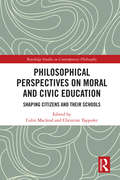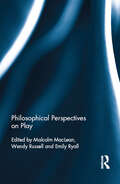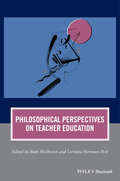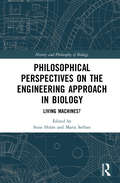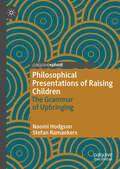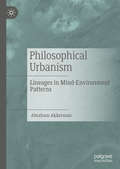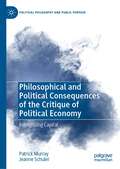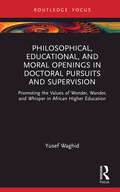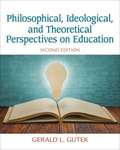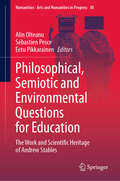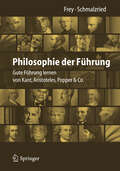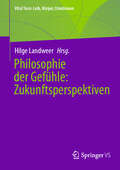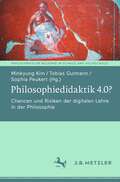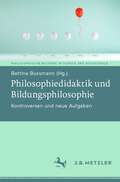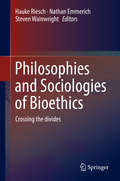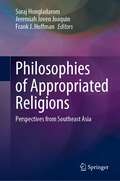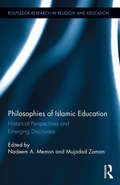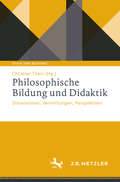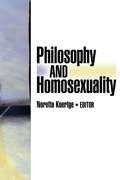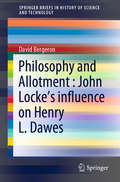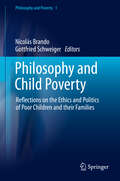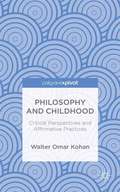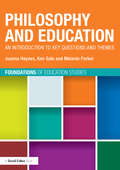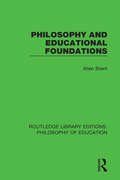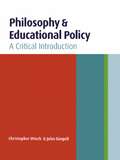- Table View
- List View
Philosophical Perspectives on Moral and Civic Education: Shaping Citizens and Their Schools (Routledge Studies in Contemporary Philosophy)
by Colin Macleod Christine TappoletMany people place great stock in the importance of civic virtue to the success of democratic communities. Is this hope well-grounded? The fundamental question is whether it is even possible to cultivate ethical and civic virtues in the first place. Taking for granted that it is possible, at least three further questions that arise: What are the key elements of civic virtue? How should we cultivate these virtuous dispositions? And finally, how should schools be organized in order to make the education of citizen possible? These interrelated questions are the focus of this collection. By considering these questions from a variety of philosophical perspectives ranging from moral psychology, philosophy of education, and political philosophy, the nine essays assembled here advance our understanding of the challenges we face in trying to shape children to be virtuous citizens.
Philosophical Perspectives on Play
by Malcolm MacLean, Wendy Russell and Emily RyallPhilosophical Perspectives on Play builds on the disciplinary and paradigmatic bridges constructed between the study of philosophy and play in The Philosophy of Play (Routledge, 2013) to develop a richer understanding of the concept and nature of play and its relation to human life and value. Made up of contributions from leading international thinkers and inviting readers to explore the presumptions often attached to play and playfulness, the book considers ways that play in ‘virtual’ and ‘real’ worlds can inform understandings of each, critiquing established norms and encouraging scepticism about the practice and experience of play. Organised around four central themes -- play(ing) at the limits, aesthetics, metaphysics/ontology and ethics -- the book extends and challenges notions of play by drawing on issues emerging in sport, gaming, literature, space and art, with specific attention paid to disruption and danger. It is intended to provide scholars and practitioners working in the spheres of play, education, games, sport and related subjects with a deeper understanding of philosophical thought and to open dialogue across these disciplines.
Philosophical Perspectives on Teacher Education (Journal of Philosophy of Education)
by Ruth Heilbronn Lorraine Foreman PeckPhilosophical Perspectives on Teacher Education presents a series of well-argued essays about the ethical considerations that should be addressed in teacher training and educational policies and practices. Brings together philosophical essays on an underserved yet urgent aspect of teacher education Explores the kinds of ethical considerations that should enter into discussions of a teacher’s professional education Illuminates the knowledge and understanding that teachers need to sustain their careers and long-term sense of well being Represents an important resource to stimulate contemporary debates about what the future of teacher education should be
Philosophical Perspectives on the Engineering Approach in Biology: Living Machines? (History and Philosophy of Biology)
by Sune Holm Maria SerbanPhilosophical Perspectives on the Engineering Approach in Biology provides a philosophical examination of what has been called the most powerful metaphor in biology: The machine metaphor. The chapters collected in this volume discuss the idea that living systems can be understood through the lens of engineering methods and machine metaphors from both historical, theoretical, and practical perspectives. In their contributions the authors examine questions about scientific explanation and methodology, the interrelationship between science and engineering, and the impact that the use of engineering metaphors in science may have for bioethics and science communication, such as the worry that its wide application reinforces public misconceptions of the nature of new biotechnology and biological life. The book also contains an introduction that describes the rise of the machine analogy and the many ways in which it plays a central role in fundamental debates about e.g. design, adaptation, and reductionism in the philosophy of biology. The book will be useful as a core reading for professionals as well as graduate and undergraduate students in courses of philosophy of science and for life scientists taking courses in philosophy of science and bioethics.
Philosophical Presentations of Raising Children: The Grammar of Upbringing
by Naomi Hodgson Stefan RamaekersThis book uses contemporary film to articulate a philosophical account of raising children. It forms part of a revaluation of the parent as a pedagogical figure, which stands in contrast to the instrumental accounts dominant in contemporary ‘parenting’ culture. Hodgson and Ramaekers use film in order to offer an affirmative account of the experience of raising children, as a presentation of those inevitable aspects and experiences that upbringing is: the initiation into language and the world; the representative nature of the parent; and the maintaining of mundane practices that constitute our shared culture and community. The films which are discussed are taken as grammatical investigations and enable the authors to develop an account of the use of film in education and as educational philosophy, and to respond to each film’s invitation to articulate the existential dimensions of raising children. Philosophical Presentations of Raising Children will be of interest to students and scholars across a range of disciplines, including education, sociology, philosophy, critical parenting studies and film studies.
Philosophical Urbanism: Lineages in Mind-Environment Patterns
by Abraham AkkermanThis book expands on the thought of Walter Benjamin by exploring the notion of modern mind, pointing to the mutual and ongoing feedback between mind and city-form. Since the Neolithic Age, volumes and voids have been the founding constituents of built environments as projections of gender—as spatial allegories of the masculine and the feminine. While these allegories had been largely in balance throughout the early history of the city, increasingly during modernity, volume has overcome void in city-form. This volume investigates the pattern of Benjamin's thinking and extends it to the larger psycho-cultural and urban contexts of various time periods, pointing to environ/mental progression in the unfolding of modernity.
Philosophical and Political Consequences of the Critique of Political Economy: Recognizing Capital (Political Philosophy and Public Purpose)
by Patrick Murray Jeanne SchulerThis book extends the approach that Murray and Schuler develop in their companion volume, False Moves in Philosophy and Social Theory: Losing Public Purpose. The chapters form a connected inquiry into consequences of capital, a far-reaching social form, through a critique of political economy and the mindset it shares with much modern philosophy and social theory. The authors call this bifurcating mentality factoring philosophy. Factoring philosophy mistakes the distinguishable for the separable. It splits the subjective and objective, form and content, and it takes the object of social theory to be an impossible economy-in-general, stripped of constitutive social forms. The critique of factoring philosophy structures the collection, which makes a wide-ranging contribution to the research field of the critique of political economy as critical social theory. Ultimately, this book solidifies Murray and Schuler’s impact on the study of political economy, political philosophy, modern philosophy, Hegel, Marx, and critical theory.
Philosophical, Educational, and Moral Openings in Doctoral Pursuits and Supervision: Promoting the Values of Wonder, Wander, and Whisper in African Higher Education (Routledge Research in Higher Education)
by Yusef WaghidThis timely volume conceptualises and applies the philosophical notions of wonder, wander, and whisper, serving as evaluative paradigms for objective assessment of quality doctoral research work and supervision in South African higher education. Written by one of the foremost academics in the field, the book combines the normative philosophical, educational, and moral notions of wonder, wander, and whisper with academic life and studies, focusing on doctoral work and supervision not just as cognitive or scientific processes, but also as existential, ethical, and political shaping of the self. By reflecting on three decades of doctoral supervision, the author gives an account of how his students have been initiated into moral discourses of democratic citizenship education and the intellectual adventures they have embarked upon through scholarly texts. The book also presents itself as a decolonial venture that repositions and resituates doctoral education in resistance to the hegemony of colonisation, inhumanity, inequality, unfreedom, and injustice in Southern Africa. Ultimately arguing for the relevance of wonder, wander, and whisper in academic culture, the book will appeal to scholars, researchers, and postgraduates in the fields of higher education, philosophy of education, and sociology of education as well as African education and doctoral studies more broadly.
Philosophical, Ideological, and Theoretical Perspectives on Education
by Gerald L. GutekGerald Gutek's Philosophical, Ideological, and Theoretical Perspectives on Education uses a systems approach to help readers examine the major schools of philosophy of education; consider the relationship of education to major ideologies including Nationalism, Liberalism, Conservatism, and Marxism; and analyze the impact of philosophy and ideology on educational theory and practice through the theories of Essentialism, Perennialism, Social Reconstruction, and Critical Theory. The concepts are made clear through the book's helpful chapter organization, which includes definitions of terms; historical contributors and antecedents; a general discussion of the particular philosophy, ideology, or theory; and relationship and application to education, especially to schools, curriculum, instruction, and to teachers and students.
Philosophical, Semiotic and Environmental Questions for Education: The Work and Scientific Heritage of Andrew Stables (Numanities - Arts and Humanities in Progress #30)
by Alin Olteanu Eetu Pikkarainen Sébastien PesceThis collected volume celebrates the life and work of the late Andrew Stables, a renowned scholar in semiotics and in educational philosophy and theory. He is known, in particular, for having pioneered the semiotic approach to education. This book celebrates his work with scholarly contributions by leading researchers in these areas of scholarship, reflecting on Andrew Stables&’ thought and intellectual legacy. The contributions are interdisciplinary, which reflects Stables&’ eclectic work. Also included are new and unpublished texts of Andrew Stables. The text is divided into three parts: Philosophy of Education, Learning as Semiotic, and Environmental Literacies. It appeals to students and researchers working in philosophy of education broadly, semiotic-oriented approaches to education, as well as discussions on multimodality.
Philosophie der Führung
by Dieter Frey Lisa Katharin SchmalzriedFührungskräfte arbeiten heute in einem unsicheren Umfeld mit wachsenden Anforderungen und immer variableren Rahmenbedingungen. Dennoch müssen sie Sicherheit ausstrahlen und ihren Mitarbeitern eine Orientierung bieten. Viele Führungskräfte empfinden dies als belastend und suchen nach einer Art Kompass, an dem sie ihr Handeln ausrichten können, nach dauerhaften Prinzipien für eine "gute Führung". Dieses Buch bietet einen solchen Kompass und leitet dazu "neue" Erkenntnisse aus uralten Theorien ab: Hätten Sie gedacht, dass die großen Philosophen von Kant über Rousseau bis Popper Anregungen für Ihr tägliches Führungshandeln bereit halten? - Wie Sie nach Ansicht Aristoteles als Chef ein gutes Vorbild werden? Wie Sie laut Hobbes mit egoistischen Mitarbeitern umgehen können? Wie nach Popper ein kritischer Dialog zu besseren Entscheidungen führen kann? Den Autoren dieses Buches gelingt es, in übersichtlichen Kapiteln verständlich und knapp die Grundlagen einer Theorie zu erklären, praktische Hinweise für eine moderne Führungskraft abzuleiten und schließlich ein verständliches Modell einer ethikorientierten Führung zu formulieren. - Kernthese: Gute Führung, die sich moralischen Werten verpflichtet sieht, ist auch eine erfolgreiche Führung! Und ganz nebenbei liest sich das Buch als eine unterhaltsame Einführung in die großen philosophischen Theorien. Für alle, die mit Aufgaben der Menschenführung betraut sind, ob in sozialen und kommerziellen Organisationen, im Bildungsbereich oder der Kindererziehung.
Philosophie der Gefühle: Zukunftsperspektiven (Vital Turn: Leib, Körper, Emotionen)
by Hilge LandweerDieser Band wirft die Frage nach der gesellschaftlichen Relevanz der inzwischen sehr differenzierten Debatte um die Philosophie der Gefühle auf und bietet ihr so eine neue Orientierung an. In einer 2022 organisierten Diskussion zwischen einigen international renommierten Emotionsforscher*innen mit Nachwuchswissenschaftler*innen, die im Bereich der Philosophie der Gefühle arbeiten, kristallisierten sich vier Bereiche heraus, die besonders aufschlussreich sind: 1. die Rolle von emotionstheoretische Weichenstellungen in der Philosophiegeschichte für aktuelle Orientierungen; 2. phänomenologische Beschreibungen einzelner Gefühle, die in der aktuellen Debatte noch wenig thematisiert werden, aber in deutlichem Zusammenhang mit normativen Fragen oder aktuellen Konfliktlagen stehen; 3. folgenreiche theoretische Kontroversen und Felder, die in der heutigen Philosophie der Gefühle noch zu entdecken sind; 4. die Ontologie des Sozialen und die Affekte.
Philosophiedidaktik 4.0?: Chancen und Risiken der digitalen Lehre in der Philosophie (Philosophische Bildung in Schule und Hochschule)
by Minkyung Kim Tobias Gutmann Sophia PeukertPhilosophie lebt vom unmittelbaren Dialog – das ist zumindest die sokratische Auffassung. Welche Folgen hat es, wenn der unmittelbare Dialog ersetzt wird durch indirektere Arten der Kommunikation? Mit dem zunehmenden Einsatz digitaler Lehrformate an den Universitäten stellt sich diese Frage in besonderer Dringlichkeit. Die Beiträge in diesem Sammelband diskutieren die Chancen und Risiken der digitalen Lehre in der Philosophie. Sie widmen sich u.a. folgenden Fragen: Welche Elemente der Präsenzlehre können durch die digitale Lehre nicht adäquat ersetzt werden? Kann man die Präsenzlehre gewinnbringend mit digitalen Lehrformen kombinieren? Hat die digitale Lehre Auswirkungen auf das Philosophieverständnis der Studierenden? Führt der Einsatz digitaler Lehrformen zu Gerechtigkeitsproblemen?
Philosophiedidaktik und Bildungsphilosophie: Kontroversen und neue Aufgaben (Philosophische Bildung in Schule und Hochschule)
by Bettina BussmannDie Philosophiedidaktik ist eine herausfordernde Disziplin. In ihrer Aufgabe als Vermittlungs- und Reflexionswissenschaft muss sie Entwicklungen der aktuellen Philosophie berücksichtigen, auf die komplexen Veränderungen unserer Lebenswelt reagieren, die Herausforderungen des Lernorts Schule ernst nehmen und die Erkenntnisse wesentlicher Bezugsdisziplinen einbeziehen. Diese Vernetzungsaufgabe verlangt nach systematischen philosophiedidaktischen Untersuchungen für die Lehrkräfteausbildung. Ziel dieses Bandes ist die Analyse und Diskussion der philosophischen, fachdidaktischen und bildungstheoretischen Fragestellungen einer Reihe komplexer Herausforderungen, die für die Ausbildung an der Hochschule, im Referendariat sowie in der Fort- und Weiterbildung wirksam werden: Welche Rolle kann und soll philosophische Bildung in inter- und transdisziplinären Bezügen spielen, wie z.B. bei der Bildung für nachhaltige Entwicklung oder in einem Bildungslabor? Wie kann und sollte Philosophieren mit Kindern praktiziert werden? Wie kann und sollte mit der Forderung nach Inklusion umgegangen werden? Ist problemorientierter Unterricht der Goldstandard philosophischen Unterrichtens oder nicht? Auf diese und weitere Fragen geben die Beiträge der Autor*innen Antworten und Lösungsvorschläge, in denen alte und neue Kontroversen sichtbar werden. Der Band versteht sich als Beitrag zu lebendigen Grundsatzdiskursen, die ein Fundament liefern für die Entwicklung eines zeitgemäßen Philosophie- und Ethikunterrichts.
Philosophies and Sociologies of Bioethics: Crossing the divides
by Nathan Emmerich Hauke Riesch Steven WainwrightThis book is an interdisciplinary contribution to bioethics, bringing together philosophers, sociologists and Science and Technology Studies researchers as a way of bridging the disciplinary divides that have opened up in the study of bioethics. Each discipline approaches the topic through its own lens providing either normative statements or empirical studies, and the distance between the disciplines is heightened not only by differences in approach, but also disagreements over the values, interpretations and problematics within bioethical research. In order to converse across these divides, this volume includes contributions from several disciplines. The volume examines the sociological issues faced by interdisciplinary research in bioethics, the role of expertise, moral generalisations, distributed agency, and the importance of examining what is not being talked about. Other contributions try to take an interdisciplinary look at a range of specific situations, fetal alcohol syndrome in the media, citizen science, electronic cigarettes and bioethical issues in human geography.
Philosophies of Appropriated Religions: Perspectives from Southeast Asia
by Soraj Hongladarom Jeremiah Joven Joaquin Frank J. HoffmanThis book brings together different intercultural philosophical points of view discussing the philosophical impact of what we call the ‘appropriated’ religions of Southeast Asia. Southeast Asia is home to most of the world religions. Buddhism is predominantly practiced in Thailand, Vietnam, Myanmar, Singapore, Laos, and Cambodia; Islam in Malaysia, Indonesia, and Brunei; and Christianity in the Philippines and Timor-Leste. Historical data show, however, that these world religions are imported cultural products, and have been reimagined, assimilated, and appropriated by the culture that embraced them. In this collection, we see that these ‘appropriated’ religions imply a culturally nuanced worldview, which, in turn, impacts how the traditional problems in the philosophy of religion are framed and answered—in particular, questions about the existence and nature of the divine, the problem of evil, and the nature of life after death. Themes explored include: religious belief and digital transition, Theravāda Buddhist philosophy, religious diversity, Buddhism and omniscience, indigenous belief systems, divine apology and unmerited human suffering, dialetheism and the problem of evil, Buddhist philosophy and Spinoza’s views on death and immortality, belief and everyday realities in the Philippines, comparative religious philosophy, gendering the Hindu concept of dharma, Christian devotion and salvation during the Spanish colonial period in the Philippines through the writings of Jose Rizal, indigenous Islamic practices in the Philippines, practiced traditions in contemporary Filipino celebrations of Christmas, role of place-aspects in the appropriation of religions in Southeast Asia, and fate and divine omniscience. This book is of interest to scholars and researchers of philosophy of religion, sociology of religion, anthropology of religion, cultural studies, comparative religion, religious studies, and Asian studies.
Philosophies of Islamic Education: Historical Perspectives and Emerging Discourses (Routledge Research in Religion and Education #4)
by Mujadad Zaman Nadeem A. MemonThe study of Islamic education has hitherto remained a tangential inquiry in the broader focus of Islamic Studies. In the wake of this neglect, a renaissance of sorts has occurred in recent years, reconfiguring the importance of Islam’s attitudes to knowledge, learning and education as paramount in the study and appreciation of Islamic civilization. Philosophies of Islamic Education, stands in tandem to this call and takes a pioneering step in establishing the importance of its study for the educationalist, academic and student alike. Broken into four sections, it deals with theological, pedagogic, institutional and contemporary issues reflecting the diverse and often competing notions and practices of Islamic education. As a unique international collaboration bringing into conversation theologians, historians, philosophers, teachers and sociologists of education Philosophies of Islamic Education intends to provide fresh means for conversing with contemporary debates in ethics, secularization theory, child psychology, multiculturalism, interfaith dialogue and moral education. In doing so, it hopes to offer an important and timely contribution to educational studies as well as give new insight for academia in terms of conceiving learning and education.
Philosophische Bildung und Didaktik: Dimensionen, Vermittlungen, Perspektiven (Ethik und Bildung)
by Christian TheinDie Beiträge dieses Bandes betrachten die Verbindung zwischen bildungsphilosophischen und philosophiedidaktischen Themen. So werden im ersten Teil "Philosophie und Bildung" aus der Philosophie heraus Konzepte und Ideen entwickelt, die für theoretische und praktische Fragen der Bildung von Relevanz sind. Der zweite Teil enthält Beiträge, die das besondere Verhältnis von philosophischer Bildung und Philosophiedidaktik in den Blick nehmen. Der dritte Themenblock schlägt dann die Brücke von den fachdidaktischen Konzepten und Ideen in den konkreten Unterricht: Philosophiedidaktik und philosophische Unterrichtspraxis.
Philosophy And Homosexuality
by Noretta KoertgeFor a balanced discussion of the main social, medical, and philosophical aspects of homosexuality, here is the ideal book. Written by philosophers of science, each comprehensive chapter takes a critical look at research on the etiology of homosexuality. Read Philosophy and Homosexuality and examine the evidence for both the sociobiological and hormonal explanations of homosexuality and study the definitions of sexual orientation and how they have affected research.
Philosophy and Allotment : John Locke's influence on Henry L. Dawes (SpringerBriefs in History of Science and Technology)
by David BergeronThis book provides a new perspective for examining the Native policies of the late nineteenth century. It centers on the figure of Henry Laurens Dawes, and more specifically, on the conceptual roots of his views on allotment, education and assimilation. These roots are grounded in John Locke’s epistemology and pedagogy. Through a philosophical analysis of Dawes’ ideas and policies, the book provides a new approach to arrive at a better understanding of an important historical process. In this regard, an often-overlooked link between philosophy and history is clarified, helping philosophers, historians and other scholars in their quest for knowledge. This book clarifies the impact of philosophical ideas on historical conceptions, and by studying Dawes, also addresses the reflection behind a major historical process. Political and social philosophers, as well as historians of ideas and of Native policies, will greatly benefit from this concise book.
Philosophy and Child Poverty: Reflections on the Ethics and Politics of Poor Children and their Families (Philosophy and Poverty #1)
by Gottfried Schweiger Nicolás BrandoThis book offers a broad and diverse reflection of the ways in which child poverty could be conceptualised, and the ways in which it is intertwined with childhood as a specific social condition. Furthermore, the responsibilities towards children and the possible mechanisms required for dealing with this condition will be analysed and clarified. This is the first volume on philosophy and child poverty. Despite the increasing number of publications on poverty, the particular phenomenon of poverty during childhood has not received much philosophical attention. This is surprising, given the severity and depth of child poverty around the globe. This volume brings together various philosophical approaches and how they understand and tackle child poverty. This is an important addition to the philosophical literature, which is also of wider interest to scholars working in the social sciences and with an interest in child poverty.
Philosophy and Childhood: Critical Perspectives and Affirmative Practices
by Walter Omar KohanKohan offers a transformative, revolutionary, and more radical alternative theory and practice of philosophy for children. He critiques the current state of philosophy for children and demonstrates alternative ways of thinking and practicing philosophy in childhood education.
Philosophy and Education: An introduction to key questions and themes (Foundations of Education Studies)
by Joanna Haynes Ken Gale Melanie ParkerWritten specifically for education studies students, this accessible text offers a clear introduction to philosophy and education. It skilfully guides readers through this challenging and sometimes complex area bringing key philosophical ideas and questions to life in the context and practice of education. There is also a companion website to accompany the book, featuring live weblinks for each activity which can be visited at www.routledge.com/cw/haynes. The authors consider the implications of educational trends and movements through a variety of philosophical lenses such as Marxism, utopianism, feminism and poststructuralism. The book explores enduring themes such as childhood and contemporary issues such as the teaching of critical thinking and philosophy in schools. Features include: a range of individual and group activities that invite questioning and discussion case studies and examples from a variety of formal and informal education settings and contexts reference to philosophically informed practices of research, reading, writing and teaching suggestions for further reading in philosophy and education overviews and - and key questions for each chapter Drawing on readers’ experiences of education, the book reveals the connections between philosophical ideas and educational policy and practice. Part of the Foundations in Education Studies series, this timely textbook is essential reading for students coming to the study of philosophy and education for the first time.
Philosophy and Educational Foundations (Routledge Library Editions: Philosophy of Education)
by Allen BrentWhat models in the social sciences underlie existing or proposed patterns of educational practice? What theories of knowledge inform such models and thus arguably sanction such practice? In this book, first published in 1983, the author seeks some tentative answers. Wittgenstein’s understanding of ‘family resemblance’ and Chomsky’s ‘linguistic universals’ are interpreted, contrary to Hamlyn, as reconcilable notions that can both illuminate and refine Hirst’s understanding of ‘categorical concepts’. In the light of such a reformulated theory, Brent suggest ways in which a unified model of the social sciences could yield a unified curriculum theory. This title will be of interest to students of the philosophy of education and curriculum studies.
Philosophy and Educational Policy: A Critical Introduction
by Christopher Winch John GingellWhat are the concepts and theories behind current debates about education?This comprehensive introduction to philosophy of education discusses issues that are of current public interest and debate. It locates education at the heart of questions concerned with culture, ethics, politics, economics and shows how key educational issues have to be approached in a contextual way. Written in a clear and accessible manner with current issues in mind the book covers: the curriculum teaching and learning educational research assessment moral, personal and civic education autonomy and multicultural issues in a liberal society education and work privatisation and markets This book will be particularly useful to students on Education Studies courses, to those preparing for a career in teaching, to students of politics and to serving teachers undertaking further study in education.
